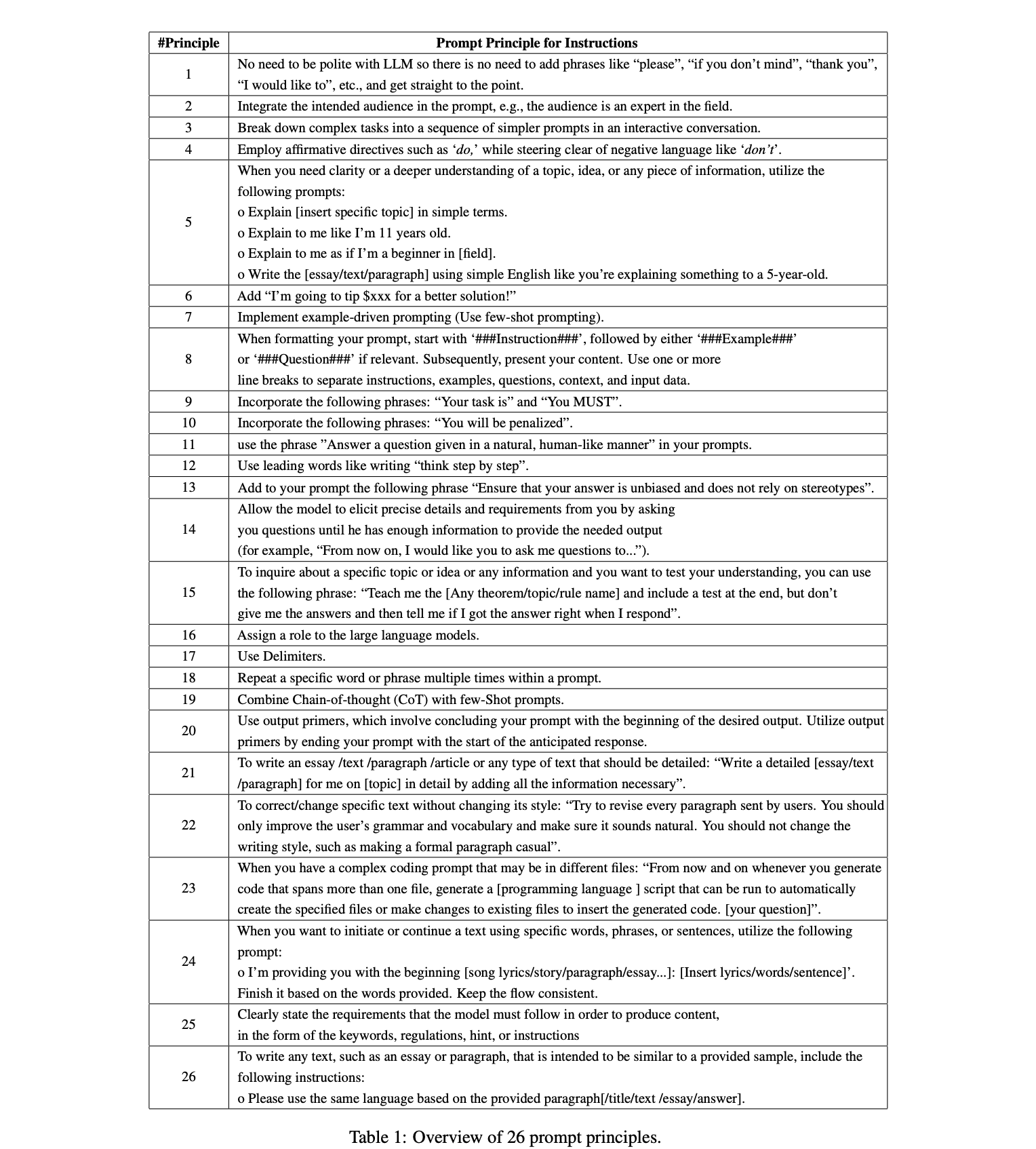The Science of Prompting ChatGPT: 26 Principles to Unlock its Potential
ChatGPT has captivated imaginations around the world with its eloquent responses and articulate conversations. This powerful large language model (LLM) feels like a portal to an AI-powered future. But how exactly do we tap into its vast potential responsibly and beneficially? The key lies in thoughtfully designed prompts.
Prompt engineering is emerging as a nuanced skill that unlocks an LLM's capabilities. Just as we program computers with precise code, prompts allow us to "program" interactions with ChatGPT. A well-crafted prompt acts like a lens, bringing the model's strengths into focus for a given task.
But designing effective prompts is far from simple. Subtle changes can skew ChatGPT's responses in unexpected ways. Researchers have been investigating how phrasing, context, examples and other factors shape an LLM's outputs.
A team from the Mohamed bin Zayed University of AI has compiled 26 principles to streamline prompting ChatGPT and similar large models. Their goal is to demystify prompt engineering so users can query different scales of LLMs optimally. Let's look at some key takeaways:
- Clarity Counts: Craft prompts that are concise and unambiguous, providing just enough context to anchor the model. Break complex prompts down into sequential simpler ones.
- Specify Requirements: Clearly state the needs and constraints for the LLM's response. This helps align its outputs to your expectations.
- Engage in Dialogue: Allow back-and-forth interaction, with the LLM asking clarifying questions before responding. This elicits more details for better results.
- Adjust Formality: Tune the language formality and style in a prompt to suit the LLM's assigned role. A more professional tone elicits a different response than casual wording.
- Handle Complex Tasks: For tricky technical prompts, break them into a series of smaller steps or account for constraints like generating code across files.

Image Source: Bsharat, Sondos Mahmoud, Aidar Myrzakhan, and Zhiqiang Shen. "Principled Instructions Are All You Need for Questioning LLaMA-1/2, GPT-3.5/4." arXiv preprint arXiv:2312.16171 (2023).
Testing these principles revealed they improve ChatGPT's accuracy and response quality, especially for larger models. On average across tasks, prompts designed with principles enhanced GPT-4's performance by over 60% compared to unmodified prompts.
So prompt engineering is no opaque art, but a learnable skill. Using principles like those above helps regular users unlock more of ChatGPT's potential safely, steering its impact in a responsible direction. There is immense value in developing an intuitive feel for prompting as LLMs advance. The programs we write for them shape their behaviour.
Of course, this is just the start - prompt design remains an open research problem. Striking the right balance for societal benefit as models evolve will require ongoing, collaborative effort between users, researchers and model builders. But initiatives like these principles offer a solid starting point for this journey.
This article was supported by KoalaAI, a high quality SEO-optimiser, powered by GPT4, it combines SERP analysis with real-time data to support in creating content that ranks.
Looking for prompts? We have the world's best prompts here.
Want more blogs? Find more here.
Full credit for the original research: Bsharat, Sondos Mahmoud, Aidar Myrzakhan, and Zhiqiang Shen. "Principled Instructions Are All You Need for Questioning LLaMA-1/2, GPT-3.5/4." arXiv preprint arXiv:2312.16171 (2023).

About the Author
Stephen is the founder of The Prompt Index, the #1 AI resource platform. With a background in sales, data analysis, and artificial intelligence, Stephen has successfully leveraged AI in order to build a free platform that helps others integrate artificial intelligence into their lives. Connect with him on LinkedIn or Telegram.
